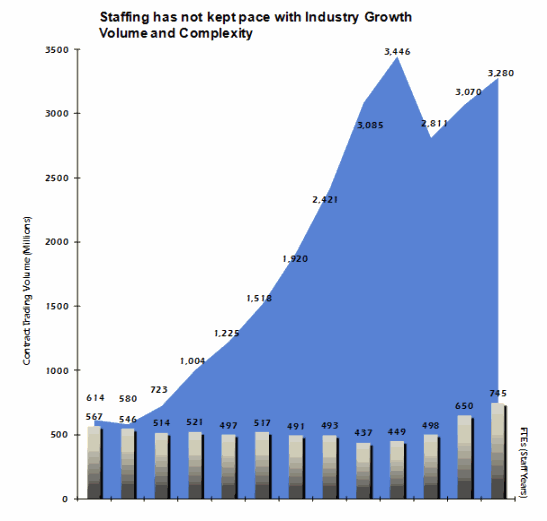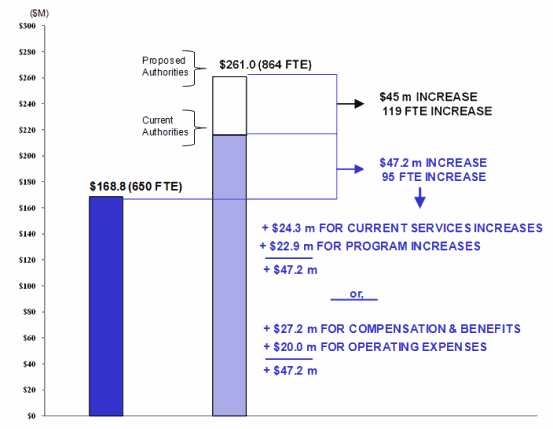Oral Testimony of Chairman Gary Gensler Before the Senate Committee on Appropriations, Subcommittee on Financial Services and General Government
April 28, 2010
Good afternoon Chairman Durbin, Ranking Member Collins and members of the Subcommittee. I thank you for inviting me to testify today. I am pleased to testify on behalf of the Commodity Futures Trading Commission (CFTC)
With the help of this Subcommittee, the CFTC has increased staffing levels to approximately 600 staff. This is roughly the same as our staffing levels in the early 1990s. In 2007, we hit historic staffing lows of 437 staff. We believe that we need 745 staff to fully meet our mission to protect investors and promote transparency.
The CFTC ensures that futures exchanges have procedures to protect market participants and ensure fair and orderly trading. The CFTC also oversees clearinghouses, which act as middlemen between two parties to a transaction and take on the risk that one counterparty to the trade may fail to meet its obligations. We regulate intermediaries, such as futures commission merchants, commodity pool operators and commodity trading advisors who deal with the public. The CFTC has wide-ranging transparency efforts and surveillance powers to police the markets for fraud, manipulation and other abuses.
Though our staffing levels are only slightly higher than they were ten years ago, futures trading volume increased almost five-fold. The number of actively traded futures and options contracts increased seven-fold.

With help from this Subcommittee, the Commission has replenished its staff to 1990s levels. This has helped us better fulfill our mission, but we are still sorely lacking the resources necessary to fully regulate the markets.
With recent increases in funding, we have been able to implement or improve several essential programs.
First, we have significantly bolstered the enforcement division. The enforcement program is on track to reach a staff level of more than 170 by the end of this fiscal year after an all-time low of 109 in FY 2008.
Second, we have embarked upon a program to automate our surveillance. With hundreds of thousands of transactions a day, the CFTC needs 21st century computing power to protect the American public.
Third, we are implementing authorities outlined in the 2008 Farm Bill. Yesterday the Commission determined that seven additional contracts traded on exempt commercial markets perform significant price discover functions, extending regulatory authority to those markets to police for fraud and manipulation.
Fourth, the Commission proposed a number of important rules, including rules regarding position limits and foreign exchange dealing. We also are considering rules on co-location and account ownership data.
Even with recent increases in funding, we still are unable to implement essential reforms to protect the American public.
First, while market participants have the technology to automate their trading, we do not yet have the resources to automate our surveillance. Though we started in 2010, this is a multi-year project to make sure that we have automated flags and alerts to assist our staff to police for wash sales, front running and other deceptive practices.
Second, we need staffing levels and resources to conduct annual examinations of exchanges, clearinghouses and certain market intermediaries.
Third, we need to build our enforcement staff to 200. The financial crisis exposed more fraudulent schemes that require extensive staff resources. Manipulation cases can last up to three years and sometimes require review of millions of documents.
For these reasons, it is appropriate to bolster our funding to $216 million and increase staff to 745.

Beyond our existing authority, the full Senate could begin to consider financial regulatory reform legislation in the coming days. I support the Lincoln-Dodd package to bring regulation to the over-the-counter derivatives marketplace. Should financial reform legislation pass, the CFTC and the SEC will have significant roles to play.
The CFTC will likely need to write and implement 20-30 new rules for the OTC marketplace. If reform passes, we will begin to regulate trade repositories, swap execution facilities, derivatives clearinghouses and other entities. These authorities will require $45 million and 119 additional staff in FY 2011 and more in subsequent years.
The staff of the CFTC is comprised of talented public servants. However, the financial crisis and the significant increase in trade volume, market complexity and globalization require that additional resources and staff be committed to the protection of American taxpayers.
I thank you for inviting me to testify today.
Last Updated: January 24, 2011
